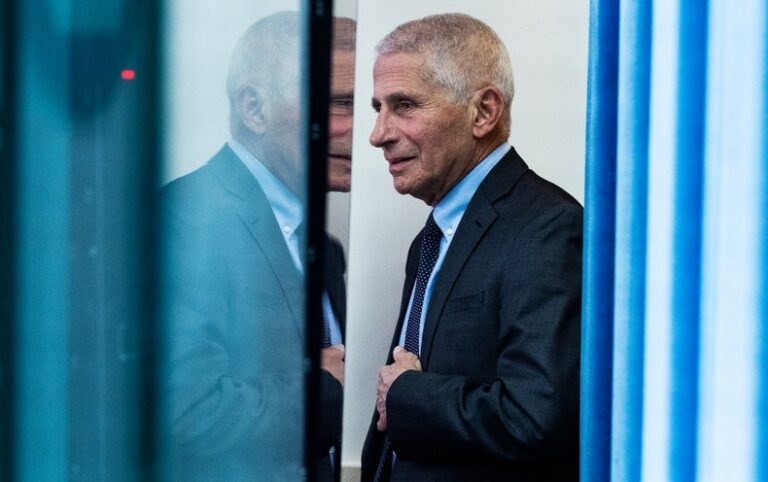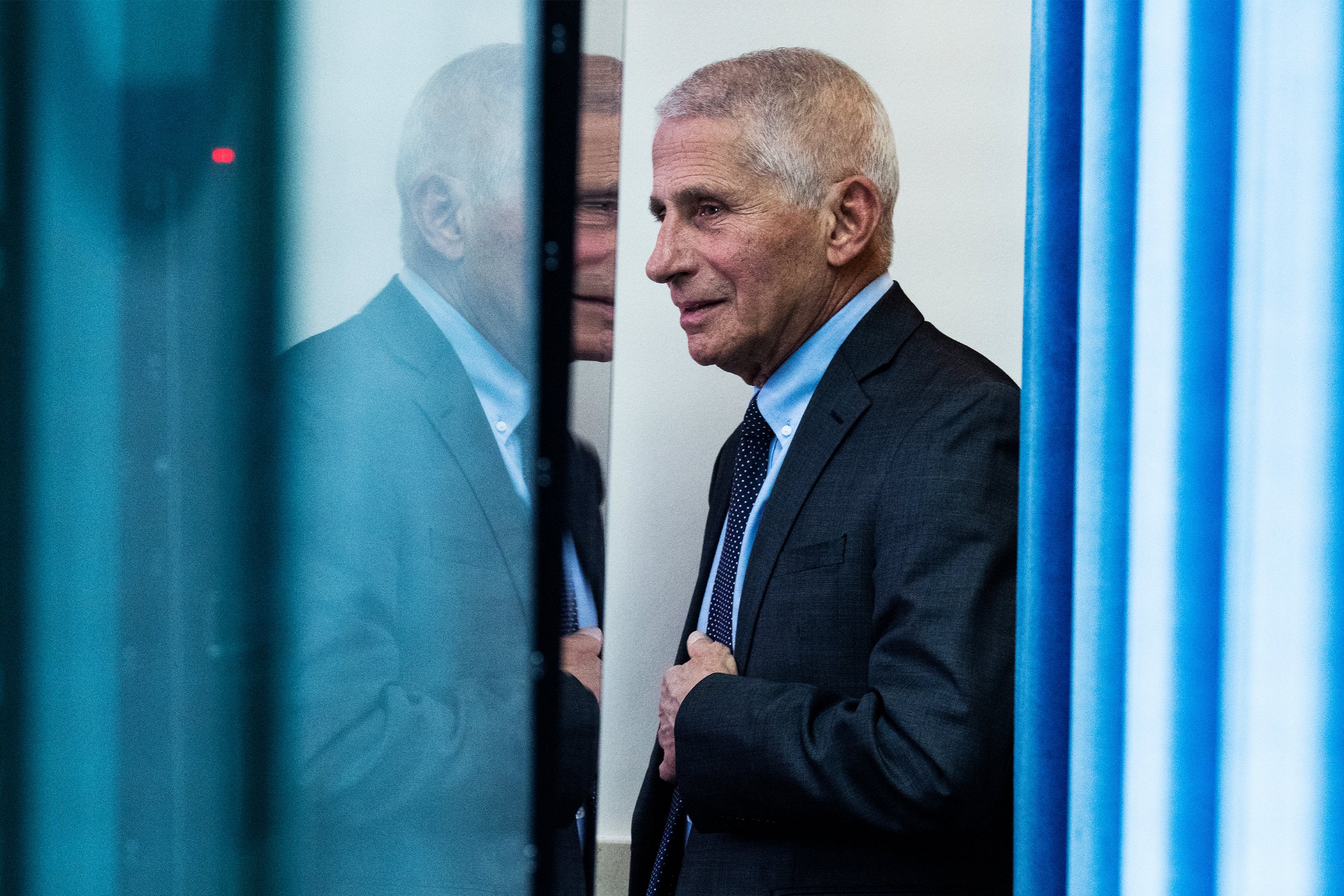
[ad_1]

This month, Anthony Fauci will step down as director of the US National Institute of Allergy and Infectious Diseases (NIAID) after more than 38 years in the post and 54 years at its parent organization, the US National Institutes of Health (NIH). He has led the institute under seven US presidents and overseen its research and response to the HIV/AIDS epidemic, the Ebola outbreak that began in West Africa in 2014 and the COVID-19 pandemic. The 81-year-old physician-scientist became a household name during the pandemic, during which he was revered as a trusted source of advice by some and disparaged by others, including former US president Donald Trump, who saw his advice as inconsistent and overbearing. On 11 December, he was attacked on Twitter by Elon Musk, who took over the social-media platform in October. Fauci spoke to Nature about Musk’s comments, the pandemic and his own legacy.
Thinking back on your decades at the NIH, in which area of infectious disease have we made the most progress?
One of the most important is in the area of HIV. In 1981, when we first became aware of the cases of HIV, [it was] a mysterious disease of unknown etiology that was killing virtually everybody who was infected. It was one of the darkest periods of my or anybody’s professional career in infectious diseases. We went from that bleak time of not knowing what was killing all of these mostly young gay men to getting the [underlying virus], a diagnostic test and, within a few years, an entire series of drugs, which when used in combination, have completely transformed the lives of people with HIV. We also have developed highly effective prevention methods with pre-exposure prophylaxis and [can treat] people who are infected, bringing the level of virus to below detectable levels, so they don’t transmit it to anybody else.
Where will we see the next revolution in infectious disease?
One of the holy grails of infectious-disease research is a safe and effective vaccine for HIV. We’ve made spectacular advances in the development of therapies, both for treatment and prevention of disease. But the one thing that’s eluded us up to now has been a safe and effective vaccine. So that’s one of the things we look forward to. The other is the possibility, although it’s a stretch, in some respects, to have a cure for HIV, where you can have durable suppression or elimination and eradication of virus in the absence of any further therapy. We have not reached that point yet, but that is an aspirational goal.
Your previous boss, former NIH director Francis Collins, lamented the lack of behavioural-science research to better understand misinformation about vaccines and other aspects of public health. Do we need to rethink how we incorporate social science into ‘hard’ biomedical science?
Yes, we do. And you do it by just doing it. It’s not that difficult to incorporate a discipline of social sciences into the discipline of the hard sciences of developing vaccines. It is very disturbing that, in our country, we have 68% of the total population vaccinated with the primary vaccine for COVID. Of those, only half have received a single boost. And importantly, [despite] the availability of an effective BA.4/5 bivalent updated booster, only 13% of the eligible population has received it. That is very disturbing, and almost embarrassing for us that we have that low an enthusiasm about getting a life-saving vaccine.
Beyond vaccine hesitancy, how can behavioural sciences play a part in pandemic responses?
Another aspect that has been brought to the fore by COVID-19 is the importance of mental health, and paying attention to the stresses that [the pandemic] has put on society: not only on health-care workers, doctors and nurses, but also on the general population, including children. [Their] growth and development has been [shaped] not only by missing in-person school, but also by the stress of losing grandparents and parents, and seeing the disruption of the normal flow of their childhood. All of that has had a major negative impact on mental health.
During the COVID-19 pandemic, we’ve seen governments censor scientists, distort data and otherwise act in bad faith, which makes international collaboration on preventing pandemics difficult. How can researchers toe this tricky line?
That’s impossible to answer. If there are countries or groups that are not transparent, that’s a big hindrance to the global public-health effort. And I would hope that all the countries of the world come to a realization that we’ve got to be completely cooperative, collaborative and transparent in everything we do, because there’s no such thing as a pandemic, particularly of an infectious disease spread by the respiratory route, that’s going to stay in one country. We saw that very painfully with how COVID spread throughout the world and has already resulted in close to seven million deaths, and that’s probably a gross underestimate.
How would you score the world’s response to the pandemic?
It’s very difficult to give a fair [answer], because when you’re dealing with a virus as formidable as this, you are going to get deaths. But the global community, including the United States, certainly could have done better. The one success story has been the rapid development and deployment of vaccines. What has not been as successful is the public-health response. Take this country as an example. Over the decades, we have let our public-health system atrophy [by] not replacing people who leave, not keeping the equipment up to date, not getting [information] accessible in real time. We’ve had to go to other countries to get real-time information: the UK, Israel, South Africa. Whereas in our system of reporting, the states don’t have to report to the CDC [US Centers for Disease Control and Prevention]—the CDC has to ask them to participate in the response. That really has got to change.
On Sunday, entrepreneur Elon Musk called for your prosecution, claiming that you lied to Congress and funded research that killed millions of people. How do you respond to the tweets?
I don’t pay attention to that, Max, and I don’t feel I need to respond. I don’t tweet. I don’t have a Twitter account. A lot of that stuff is just a cesspool of misinformation, and I don’t waste a minute worrying about it.
Do you feel that your safety is at risk, given Musk’s enormous reach on Twitter?
Of course it’s at risk. That’s why I have armed federal agents with me all the time. That stirs up a lot of hate in people who have no idea why they’re hating—they’re hating because somebody like that is tweeting about it.
On that note, what advice would you give to early-career scientists who might be rethinking their career choices after seeing some of the vitriol directed at you and other public-health officials during the pandemic?
I would encourage them not to be deterred, because the satisfaction and the degree of contribution you can make to society by getting into public service and public health is immeasurable. It’s really extraordinary. It overcomes and counters all of the other bad stuff. It’s unfortunate that we are going through the attacks on public-health officials. But the satisfaction and the accomplishments you can [achieve] in the field are great. And it certainly supersedes all that other stuff.
I understand you’re still formulating your plans after you leave the director post, is that right?
Well, I’m going to write and lecture, and possibly [write] a memoir. But I’m certainly not going to retire in the classic sense.
This article is reproduced with permission and was first published on December 13 2022.
[ad_2]